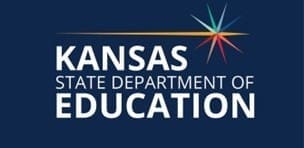The Kansas State Board of Education voted to accept the final report of the Blue Ribbon Task Force on Student Screen Time, which provides guidance on student use of digital technology in schools.
Before the vote, Board Chair Melanie Haas of Overland Park clarified that accepting the report acknowledges the task force’s work but does not imply endorsement of its recommendations. The board authorized the Kansas State Department of Education to release the report to districts.
Developed by a 36-member task force, the evidence-based report aims to guide local boards in creating or updating their student technology policies. State Board members noted that decisions on digital policies should be made by local boards, districts, and communities. The State Board will support districts in developing or revising their policies as needed.
The report, led by Dr. Jake Steel, Student Ava Gustin, and Principal Brian Houghton, centers on three key areas: use of personal devices in school, screen time and mental health, and parental oversight of district-owned devices. Task force membership included diverse representatives and relied on research such as The Anxious Generation by Jonathan Haidt.
Key Recommendations in the report include:
- Personal Devices in School:
- Implement a bell-to-bell policy restricting personal device use.
- Secure personal devices during school hours.
- Develop emergency protocols not reliant on student devices.
- Address gaps in district-provided technology to reduce reliance on personal devices.
- Establish personal device policies for staff.
- Screen Time and Mental Health:
- Incorporate unbiased digital citizenship education.
- Share research on mental health impacts of excessive tech use.
- Provide non-social media communication channels for parents and communities.
- Encourage screen breaks for students during the day.
- Parental Oversight of District-Owned Devices:
- Implement content management systems with default protections.
- Provide age-appropriate acceptable use policies.
- Offer reporting systems for device-related issues.
- Educate families on device use and parental controls.
- Allow families to opt-out, manage access, and set stricter controls on district devices.
The report, including appendices with minority statements and additional research, will be reviewed by the State Board in December, serving as guidance for local boards to consider.













